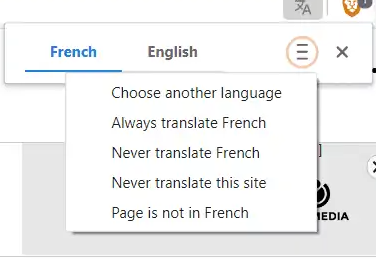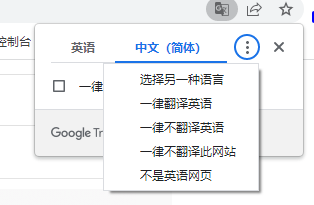According to foreign media Ghack, in the Brave 1.43.88 version released in early September, the Brave browser removed the long-term default Google translation function on both PC/Android terminals and switched to a self-developed one. Brave Translate Function,This is a more privacy-friendly self-hosted translation service.
Brave is an open source web browser developed based on the Chromium engine and is a browser that focuses on user privacy. It automatically blocks third-party ads, trackers, and autoplay of ad videos in its default settings.
Brave Software, the company behind the Brave browser, was co-founded in 2015 by Brendan Eich and Brian Bondy, creators of JavaScript and co-founder of Mozilla.
Like the Vivaldi translation function launched by the Vivaldi browser in version 4.0, Brave also uses a self-hosted Lingvanex server to support translation services, and all data does not need to go through third-party services such as Google and Microsoft, ensuring user privacy to a greater extent.
Brave Translator pops up automatically when a user uses Brave to visit some foreign language (language not installed on the native device) site. As you can see from the image below, Brave Translator provides 5 translation options:
- Choose another target language
- always translate this language
- Never translate this language
- Never translate this site
- Detected language mismatch
(Left Brave, Right Google)


Its functional options are similar to most browsers (such as Google Translate). Because the service is hosted on a server, Brave’s translation function still requires a network to function, which is different from the translation function of the Firefox browser, which is integrated locally and can be used even when disconnected from the Internet.
Brave’s “De-Googlerization”
Due to the weak R&D strength, the Brave project team migrated from the self-developed Muon components to the open source Chromium kernel in 2018. But as a browser that focuses on privacy features, Brave has been working on “de-Googleification”, such as disabling the Google account sync function, and removing Google’s related code for search suggestions and information collection.
In addition, Brave acquired Tailcat in April this yearand launched its own default search engine “Brave Search” after some renovations. It and the Brave browser form the industry’s first independent and privacy-protecting combined browser product to fight against Google Chrome and its search engine. Google Search.
#Abandon #Google #Translate #Brave #browser #selfdeveloped #privacyfriendly #translation #service #News Fast Delivery #Chinese #open #source #technology #exchange #community